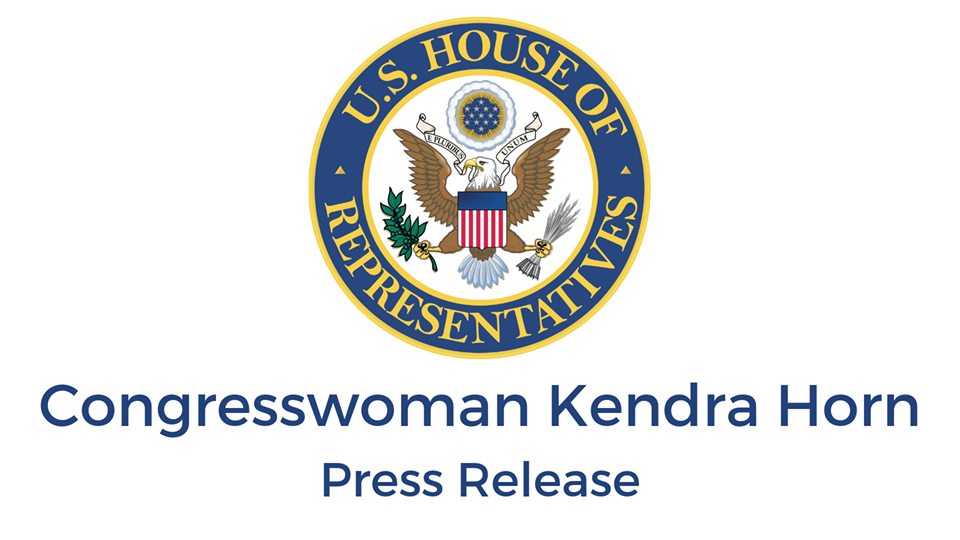For Immediate Release:
January 30, 2019
Horn Introduces the Shutdown to End All Shutdowns Act – (SEAS Act)
A Bill To Prevent Future Government Shutdowns
WASHINGTON, DC – Congresswoman Kendra Horn and a group of freshman lawmakers in the U.S. House of Representatives unveiled the Shutdown to End All Shutdowns (SEAS) Act in a press conference yesterday. The SEAS Act is aimed at protecting federal employees and contractors from being used as pawns in political negotiations by transferring the burden of shutdowns to Members of Congress and Executive Branch officials.
“The 116th Congress inherited the longest government shutdown in U.S. history and made me painfully aware of the burden placed on furloughed government employees, and the families and communities that rely on their work, during a government shutdown. These furloughed employees, their families, and the communities that rely on government services did nothing to cause the government shutdown and should not have had to suffer because of it.” Congresswoman Horn said. “I am proud to support the SEAS Act to ensure this hardship is not endured again by federal employees who are not directly connected to the government shutting down.”
Since the current federal budget and appropriations process was enacted in 1976, twenty-two funding gaps have occurred – of which ten have forced federal employees to be furloughed or work without pay. The SEAS Act allows the government to keep running in the event of failure to enact appropriations legislation. During past shutdowns, members of Congress and senior Executive Branch officials have continued to receive paychecks and travel even as millions of Americans suffer. The SEAS Act employs disincentives to create a new alignment of interests, transferring pain from federal employees to the decision makers that caused it, and forces Members of Congress and the President’s staff to stay in Washington until a deal is reached.
This legislation applies to FY2020 and beyond, and automatically triggers a 30-day continuing resolution (CR) if a full-year appropriations bill isn’t signed into law by the end of a fiscal year. After thirty days:
- Use of federal funds will be prohibited for Member travel.
- Member pay will be suspended and not held in escrow.
- Use of federal funds for Executive Branch travel will be prohibited, unless a Cabinet secretary issues a waiver citing a threat to national security, a natural disaster or national emergency.
- Bonuses, relocation expenses, and other financial awards for senior Executive Branch officials will be prohibited. Bonuses, relocation expenses, and other financial awards for senior Executive Branch officials will be provided.
- Federal funds will be prohibited for Executive Branch reception and entertainment expenses, and for the operation of any Federal government exercise facility or golf course.
- Daily quorum calls will be in effect.
- The government will continue to operate under a CR with these disincentives in place as long as Congress and the President fail to agree on an appropriations measure.
This bill provides two core outcomes for federal employees:
1) PROTECTS federal employees from being furloughed, forced to work without pay, or being used as pawns in political negotiations.
2) TRANSFERS financial hardship from federal workers to Executive Branch officials and Members of Congress

